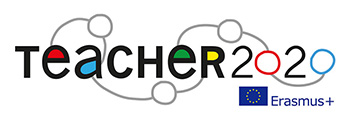| ‘A SCUOLA D’IMPRESA’ ‘Business at school’ http://www.scuolaimpresa.net |
Project presentation   |
| Responsible: · Regione Umbria – AGENZIA UMBRIA RICERCHE: http://www.aur-umbria.it
· ASSOCIAZIONE CENTRO STUDI CITTA’ DI FOLIGNO: http://www.cstudifoligno.it · ECIPA UMBRIA: http://www.ecipaumbria.it · ECIPAR RAVENNA: http://www.ecipar.ra.it |
Schools: List of Institutes, schools, number of students and teams taking part in the competition:
Total number of Students: 218 Total number of teams: 50 |
| Grade: 12th grade (pupils aged 17) |
| Duration: AA 2014/2015 |
| Briefing: The project “Business at school” is an initiative encouraged by the Umbria Research Agency (AUR), aimed to promote the Entrepreneurship culture at schools. The third edition, started in 2015, has been coinceived as a training path in which High School students from different European countries get involved into the entrepreneurial world. The project is supported by a network of experts to help the students design a business plan starting from their own busines idea.
The High schools participating in this initiative come from different Italian regions (Umbria, Emilia Romagna, Abruzzo) and European countries (France, England, Scotland, Croatia, Czech Republic, Slovakia, Faroe Islands, Denmark, French Guyana). The European Union increasingly promotes the entrepreneurship as a key factor for competitiveness, emphasizing the importance of developing a European business culture through projects and initiatives for the development of the business mindset. |
Entrepreneurial competences:The project “Business at school” specifically aims to:
a) team work for common objectives and effective communication, b) know the spirit, values and ethics of the entrepreneur, c) gather information and interact with external environments, d) relate to local institutions representatives for a possible discussion on activities to be developed in the most deprived areas of the territory, e) confront with students from other European countries to enable a better understanding of different contexts, f) economic, cultural and educational contexts. |
Key words:
|
| Aims:The objective of the project is to spread ‘Entrepreneurial culture’ in young people and develop entrepreneurship through the activation of practical learning experiences.
The project aims to:
|
| Development:To achieve these aims, the project involves fourth grade students of High school to participate in regional competitions with experimental and innovative business ideas.
The students, divided into teams, follow a targeted training to simulate a business plan, and then start implementing the business idea they have conceived. During this phase the team, with the external experts’ support, work on the following steps:
The activities and workshop carried out allowed the students to focus on the key issues relating to the business world, the local economy, marketing and communication skills. At the end of that path, the schools teams involved are compared with others school through the course of a competition, where the best business plan will be awarded. The winnig team will recieve a prize and a study visit to Brussels. Moreover, the teams with the best ideas will have the opportunity to meet with potential companies interested in their project. The members of the jury evaluated the work of the studens through a series of indicators, including:
|
| Assessment:MONITORING ACTIVITY
The following monitoring activities enabled a systematic collection of information relating to the stage of the project, monitoring the work carried out by the students of all the schools involved in the project. The following tools and main actions have been used for the monitoring activities: a) Direct observation The most relevant information such as the ongoing impact of the project and the results are collected through a direct observation of the activities conducted by external experts. All schools are involve in this type of monitoring, b) Constant dialogue with experts and consultants involve in the workshops Fruiful collaboration between the “external experts”(involve in reporting continiously the activities performed by the students), project Coordinator and responsible Heads. Their comments and suggestions arose are carefully consider by the project coordinator. Each school made a detail “monitoring board” allowing this process to evaluate the progress of the idea; the desin; notes of problems; and difficulties. Information clarification takes place mail, phone, and a online platform dedicated to the project. c) Meetings Meetings are held regulary focusing on informative,organizational, operational and / or decision-making aspects. At the meeting the Coordinator and the Heads of territorial area partricipate actively. Most of the time, the confrontation discuss the following themes:
d) The students’ feedback In addition to continuous monitoringfrom direct observation and other activities, the students feedbacks and advised are also considered through the administration of an anonymous questionnaire, made available online. The results obtained from the questionnaire online, are carerfully read by the organizers, with a deeper analysis on the negative feedbacks in order to make the necessary adjustments. e) Online monitoring The use of the online platform http://www.scuolaimpresa.net by 97% of studens represents a value tool. The easy access to information resources and educational materials avaible online are crucial and as an important support for the students activities planned. |
| FeelingsThe final evaluation
During the competion’s days, students were asked to fill some short questionnaires designed to assess the degree of satisfaction of the “Business at school” project participation. The favorable judgments (“very satisfied” + “fairly satisfied”) prevail clearly, on 89% of the respondent as appreciate on the chart below. A positive and negative record of the observations made by the studentsm can be following appreciate: a) Positive comments Quite a few students pointed out that the project has enabled them to approach for the first time the world of work and understand what it means to do business; a new way of learning that allowed them to make a space in their mind for creativity and imagination. Particularly appreciated was the experience of working in a group. “The project allowed me to understand the world of work” “This experience helped me to understand the world of work and helped me to have more confidence and ability” “It was very challenging, but it has helped us understand what it means to work in a team. Also thanks to the project have gained more skills” “It was an interesting experience that opened my vision on world trade” “I had the opportunity to work in a team and live a wonderful experience” b) Negative comments As for the negative aspects, the students mentioned the little time available for the implementation of the work. Moreover, few have decided to specify their disappointment and highlighted a lack of communications and limited support from the professor, and the imperfect alignment operation between external consultants and IPC (Internal Project coordinator). “The project was very informative, we did something new and different but the hours available were few and poorly distributed during the course” “Limited time available” “I was not interested because participation was mandatory” “Interesting project but I would have preferred more attention from the teachers along the way” |



